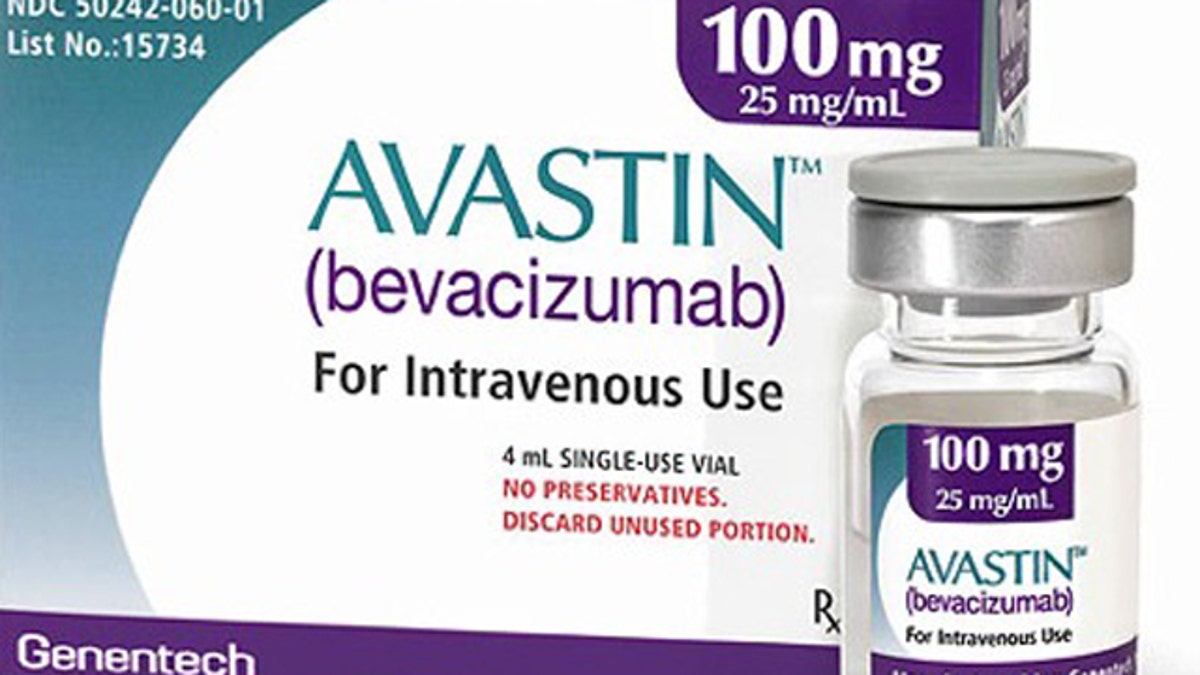
A panel of cancer experts has ruled for a second time that Avastin, the best-selling cancer drug in the world, should no longer be used in breast cancer patients, clearing the way for the government to remove its endorsement from the drug.
The unprecedented vote Wednesday by the Food and Drug Administration advisory panel comes less than a year after the same panel reached the same conclusion.
In three unanimous votes, the six members of the FDA oncology drug panel voted that Avastin is ineffective, unsafe and should have its approval for breast cancer withdrawn.
“I think we all wanted Avastin to succeed but the reality is that these studies did not bear out that hope,” said Natalie Compagni-Portis, the lone patient representative on the FDA panel.
The vote is not binding and FDA Commissioner Margaret Hamburg will make the final decision. The drug is approved for multiple cancers and will still be available for breast cancer, though most insurers are expected to drop coverage if it loses FDA approval.
The FDA began steps to remove Avastin’s breast cancer approval in December, but Roche took the rare step of appealing that decision and lobbied the agency and Congress for a second hearing.
The dramatic, contentious tone of the two-day hearing underscored the difficulty of removing an option for cancer patients, even when backed by scientific evidence.
Immediately after the final vote, patients in the audience erupted in shouts against the FDA and its panelists.
“What do you want us to take!? We have nothing else!” shouted Christi Turnage, of Madison, Miss. Turnage said her cancer has been undetectable for more than two years since starting therapy with Avastin.
A spokesman for the Abigail Alliance, which advocates for patient access to experimental medicine, said the vote should be overruled.
“This was a kangaroo court,” said Steven Walker, the group’s co-founder. “There wasn’t one dissenting thought up there, let alone one dissenting vote.”
Assuming the FDA follows through on the withdrawal, drugmaker Roche could lose up to $1 billion in revenue for its best-selling product, which generates over $6 billion per year. Avastin is FDA-approved for various types of colon, lung, kidney and brain cancer, which are not part of the debate. Doctors will still be allowed to prescribe Avastin for breast cancer, though insurers may not pay for it. When administration fees are included, a year’s treatment of Avastin can cost $100,000.
Roche’s Genentech unit argued the drug should remain available while it conducts more research on which patients benefit most from the injectable drug. The drug is approved for breast cancer that has spread, or metastasized, to other parts of the body. Such cancer is generally considered incurable.
“The data tell us it is better for women diagnosed with metastatic breast cancer to have Avastin as an approved treatment option,” said Hal Barron, Roche executive vice president.
Wednesday’s vote came after two days of hearings that often resembled a courtroom trial, complete with testimony, cross-examination and a final jury verdict. In a public comment period Tuesday, Avastin patients and their families took the role of witnesses against the FDA.
“Make no mistake, this hearing is a death trial not of Avastin but of these women who rely on Avastin to say alive,” said Terry Kalley, whose wife takes Avastin for breast cancer. “You are each personally responsible for the consequences of your own vote.”
Kelley formed a group called Freedom of Access to Medicines to protest and lobby the FDA. Kelley says the group does not receive funding from Roche.
After more than 14 hours of discussion, panelists ultimately sided with the government, saying that Avastin’s ability to slow tumor growth, which is measured through medical imaging scans, has not translated into meaningful benefit for breast cancer patients.
“I think as treating clinicians we have to ask ourselves: What are we doing in terms of helping patients? Simply delaying a change in a CT scan for a month or two is not significant unless it’s accompanied by other improvements in how the patients are doing or overall survival improvement,” said panelist Dr. Wyndam Wilson of the National Cancer Institute.
